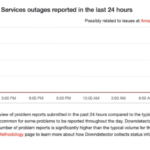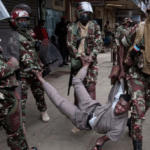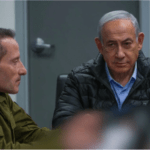The US and Britain urged for a “de-escalation” of tensions after Israel launched deadly strikes on military targets in Iran on Saturday. Meanwhile, Muslim countries and Russia criticized Israel, saying it was worsening the conflict.
Israeli planes targeted military bases, missile sites, and various installations across several regions in Iran. This was in response to a missile attack earlier this month. Iran reported that two soldiers were killed in the strikes.
Israeli planes targeted military bases, missile sites, and various installations across several regions in Iran in response to a missile attack earlier this month. Iran reported that two soldiers were killed in these strikes. The United States urged Iran to stop attacking Israel and break the cycle of violence “without further escalation.”
Israel’s “response was an exercise in self-defense and specifically avoided populated areas, focusing solely on military targets, contrary to Iran’s attack against Israel that targeted the country’s most populous city,” said National Security Council spokesman Sean Savett to reporters, emphasizing that the United States did not take part in the operation.
“It is our aim to accelerate diplomacy and de-escalate tensions in the Middle East region,” he said.
Britain: ‘De-escalation’
British Prime Minister Keir Starmer called for “de-escalation” and stated that Iran should not retaliate against Israel’s strikes.
“I think we need to be really clear that Israel does have the right to defend itself, but we are urging, and have been urging, all sides to show restraint. That is why I am very clear today: Iran should not be responding to this,” Starmer said.
– Russia: ‘Catastrophic scenario’
Russia called on all sides to exercise restraint and warned of a “catastrophic scenario.”
“We urge all parties involved to exercise restraint, stop the violence, and prevent events from developing into a catastrophic scenario,” said foreign ministry spokeswoman Maria Zakharova, who also cautioned against an “explosive escalation.”
Saudi Arabia stated that the situation “threatens security.”
Saudi Arabia condemned Israel and warned against any further escalation of the conflict in the Middle East.
“The Kingdom of Saudi Arabia expresses its condemnation and denunciation” of the Israeli strikes, the foreign ministry stated, reiterating its “firm position rejecting escalation of the conflict in the region,” which “threatens the security and stability of countries and peoples” in the Middle East.
Syria expressed its “solidarity” with its ally Iran, supporting “Iran’s legitimate right to defend itself and protect its territory and the lives of its citizens,” according to its foreign ministry.
Read More
- “People” Accuses Biden Administration in the Trump Assassination Attempt
- Beyonce boosts Harris at abortion rights rally in Texas
Iraq accused Israel of expanding the conflict in the Middle East and denounced global inaction. Government spokesman Basim Alawadi stated, “The occupying Zionist entity continues its aggressive policies and widening the conflict in the region through blatant attacks that it carries out with impunity,” citing “the international community’s silence” on Israeli actions.
Jordan described the strikes as “in violation of international law and (Iran’s) sovereignty,” calling it a dangerous escalation that increases tension in the region. Foreign ministry spokesman Sufyan Qudah urged the international community to “assume its responsibilities and take immediate measures to impose a halt to the Israeli aggression on Gaza, the West Bank, and Lebanon as a first step towards reducing the escalation.”
Turkey condemned Israel’s strikes on Iran, calling for an end to what it termed Israel’s “terror” in the region. The Turkish foreign ministry stated, “Putting an end to the terror created by Israel in the region has become a historic task for the establishment of international peace and security,” adding that Israel’s actions have brought the region to the brink of a greater war.
Pakistan condemned Israel’s strikes, asserting that it bears “full responsibility” for escalating the conflict in the Middle East. Its foreign ministry stated that the strikes “undermine the path to regional peace and stability and also constitute a dangerous escalation in an already volatile region.”
Hamas condemned Israel’s actions, calling the strikes “a blatant violation of Iranian sovereignty and an escalation that threatens the security of the region.” The movement expressed strong condemnation of the “Zionist aggression against the Islamic Republic of Iran.”
Germany’s Chancellor Olaf Scholz warned Iran against any “escalation” following Israel’s strikes on Iranian military targets. He posted on X, “My message to Iran is clear: massive escalating reactions must not continue. These must stop immediately. Only then can we open the possibility of a peaceful evolution in the Middle East.”
The Algerian foreign ministry “strongly condemns and denounces” Israel’s military strikes on Iran, calling it “heinous aggression,” and urged the international community to halt further escalation. Tunisia similarly warned of the “severe consequences” of Israel’s strikes and called on the “international community to urgently assume its responsibilities to put an end to this reckless approach.”










